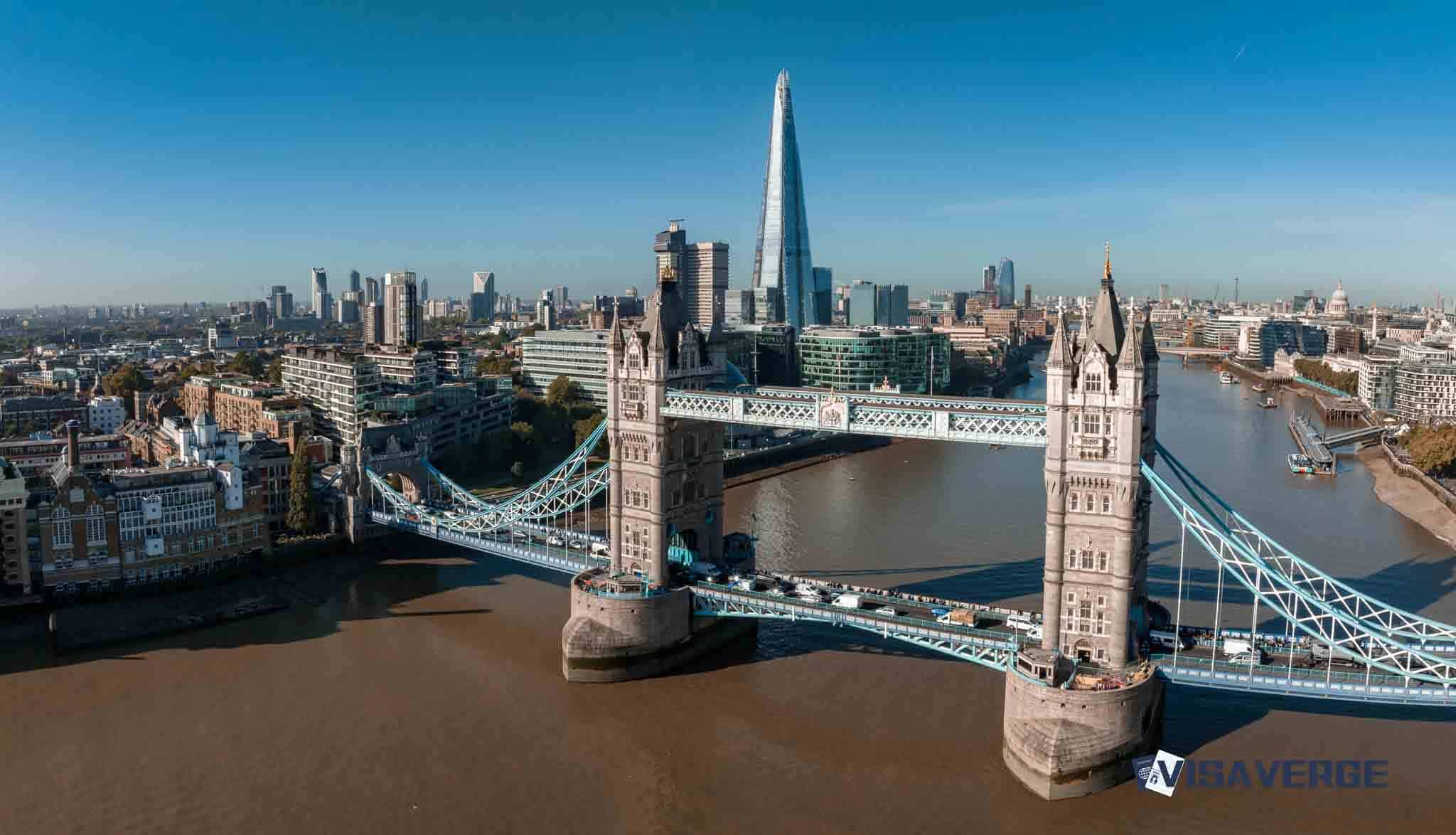(UNITED KINGDOM) Prime Minister Keir Starmer has opened a high‑stakes reset of Britain’s border rules, rolling out the “Restoring Control over the Immigration System” white paper on May 12, 2025, and beginning to phase in tighter standards this summer. The plan targets a sharp fall in net migration from its 2023 peak of about 1 million while trying to keep doors open for higher‑skill roles. Key changes include a longer wait for settlement, tougher English tests, a higher skill bar for work visas, the end of overseas hiring in social care, and tougher enforcement against illegal entry.
The government argues Labour is making a clean break from years of policy “chaos.” In a launch speech, Keir Starmer framed the move as a social contract: backing British workers and raising skills while restoring border control. Officials say the package aims to reduce overall numbers but improve quality by bringing in people with degree‑level skills and strong English who will contribute at higher wage levels.

Policy changes — headline points
- Settlement period (Indefinite Leave to Remain): doubling from 5 years to 10 years for most visa categories to slow the pace of permanent migration.
- English language standards: increased for main applicants and new requirements for dependants so families meet similar language baselines across key routes.
- Work routes overhaul:
- Minimum skill threshold for the Skilled Worker visa raised to degree level.
- 111 occupations are being removed from eligibility, trimming lower‑skill roles and narrowing sponsorship options.
- The social care worker visa route is being closed to overseas recruitment.
- Domestic recruitment and compliance:
- Employers must demonstrate greater effort to recruit domestically before sponsoring overseas staff.
- New workforce strategies will be required, showing plans to hire and train UK‑based staff before accessing certain visa categories.
- Enforcement:
- Expanded “deport now, appeal later” to 23 countries, including India, enabling faster removal of people found in the country illegally.
- Keir Starmer warned illegal entrants will face immediate detention and deportation.
- Fees:
- From April 2025, most visa and nationality fees rose by 5–10%.
- Innovator Founder visa fee set at £1,274.
Some measures are already in force; others will phase in over the year. The government flagged that key Skilled Worker rule changes took effect on July 22, 2025. The Migration Advisory Committee (MAC) has been asked to review the temporary shortage list to see which roles, if any, should retain easier access under the tighter model.
Impact on applicants
The changes raise the bar for migrants in several concrete ways:
- A 10‑year wait for settlement means longer periods on temporary visas, with higher cumulative costs, more renewals, and stricter checks.
- Higher English standards (including dependants) increase test costs and preparation time.
- The degree‑level skill threshold will exclude many roles that previously qualified, particularly in service and support jobs.
- The closure of the overseas social care route removes a key entry path for lower‑paid carers who helped fill gaps after Brexit.
These shifts force applicants to rethink timelines, budgets, and career planning if they had expected permanent status after five years.
Impact on employers
Employers face a transformed hiring environment:
- Companies that relied on mid‑ and lower‑skill sponsorships will need to:
- Accelerate internal training pipelines
- Improve pay and working conditions to attract local candidates
- HR teams must prepare workforce strategies early and document domestic recruitment efforts before applying for certain visas.
- Sectors likely to feel the biggest pressure include care, hospitality, and parts of logistics.
- Analysis by VisaVerge.com suggests firms that promptly raised salaries and invested in accredited training have had smoother transitions under the new rules.
Business groups warn these tighter rules could restrict growth if the domestic labour pool can’t expand fast enough. Ministers say the white paper supports British workers and will incentivise employers to build skills at home. The government also stresses the UK remains open to top talent by favouring degree‑level roles.
Political and social context
- Labour campaigned in 2024 on an immigration overhaul after Conservative governments failed to reduce net migration. Between 2019 and 2023, net migration rose from 224,000 to nearly 1 million.
- Keir Starmer presents the policy as correcting an “open borders” period that he argues weakened social trust and pressured public services.
- Advocacy groups warn the longer settlement path and tougher family rules will strain households, particularly those with school‑age children.
- Legal charities are watching expanded deportation powers, cautioning that faster removals could increase the risk of errors.
- The Home Office counters that the system will be fairer and clearer, with stronger focus on high skill and compliance.
The stakes are both political and economic: balancing a reduction in overall numbers with bringing in higher‑skill migrants who contribute at higher wage levels.
Practical steps for applicants and employers
- Check whether your role still qualifies under the Skilled Worker route given the degree‑level requirement and the removal of 111 occupations.
- Plan for 10 years to settlement—budget for additional visa renewals and English tests for both main applicants and dependants.
- Employers should prepare workforce strategies early:
- Show domestic recruitment efforts
- Expand training programs to build in‑house skills
- Care providers should model staffing scenarios without an overseas social care route and assess:
- Pay
- Training
- Retention strategies
What’s next
- The government may adjust measures as it monitors outcomes. The MAC’s review of the shortage list could change which jobs retain eased access.
- Ministers have not ruled out further restrictions if net migration does not fall to what they call more “sustainable” levels.
- The Home Office has promised ongoing consultations to refine rules where needed.
The full white paper, “Restoring Control over the Immigration System,” and related materials are available on the UK government website at https://www.gov.uk/. Officials say updates will be posted as new measures roll out, including any changes to eligible occupations or employer compliance steps.
In the coming months, the central question will be whether net migration begins to fall while the economy continues to hire. That balance—lower numbers, higher skills—is the core of Keir Starmer’s plan. If the labour market tightens too quickly, pressure will mount for adjustments; if numbers remain high, ministers may pursue stricter steps. Either way, migrants and the employers who rely on them will feel the effects of this white paper for years to come.
This Article in a Nutshell
On May 12, 2025, the UK published a white paper tightening immigration: settlement doubles to ten years, Skilled Worker now degree-level, 111 occupations removed, social care route closed. Employers must show domestic recruitment and workforce strategies; enforcement expands deport-now-appeal-later to 23 countries, reshaping migration and labour planning nationwide.













